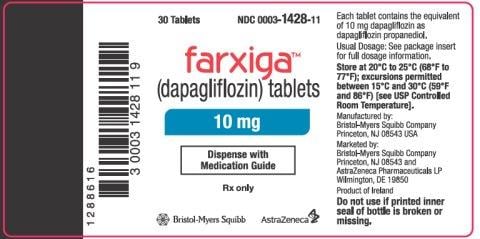
May 5, 2022 — High-level results from the DELIVER Phase III trial showed AstraZeneca’s FARXIGA (dapagliflozin) reached a statistically significant and clinically meaningful reduction in the primary composite endpoint of cardiovascular (CV) death or worsening heart failure (HF). The trial was conducted in patients with HF with mildly reduced or preserved ejection fraction (defined as left ventricular ejection fraction [LVEF] greater than 40%).
HF is a chronic, long-term condition that worsens over time1. It affects nearly 64 million people globally2 and is associated with substantial morbidity and mortality3. There are several main categories of HF related to ejection fraction (EF), a measurement of the percentage of blood leaving the heart each time it contracts including: HF with reduced EF (HFrEF) (LVEF less than or equal to 40%), HF with mildly reduced EF (HFmrEF) (LVEF 41-49%) and preserved EF (HFpEF) (LVEF greater than or equal to 50%)4. Approximately half of all HF patients have mildly reduced or preserved EF with few therapeutic options available4,5. FARXIGA already has approved indications relating to the treatment of type 2 diabetes (T2D), HFrEF and chronic kidney disease (CKD).
Dr. Scott Solomon, Professor of Medicine at Harvard Medical School and Brigham and Women’s Hospital and Principal Investigator of the DELIVER Phase III trial, said: “We are delighted to have met the primary endpoint in this patient population which has few treatment options. DELIVER is the largest and broadest trial to date in heart failure with mildly reduced or preserved ejection fraction. The results of DELIVER extend the benefit of dapagliflozin to the full spectrum of patients with heart failure.”
Mene Pangalos, Executive Vice President, BioPharmaceuticals R&D, AstraZeneca, said: "Today’s groundbreaking results coupled with those from the DAPA-HF trial show that FARXIGA is effective in treating heart failure regardless of ejection fraction. These data build upon our previous studies demonstrating cardiorenal protection across patients with either diabetes, chronic kidney disease or heart failure.”
The safety and tolerability profile of FARXIGA in the DELIVER Phase III trial were consistent with the well-established safety profile of the medicine.
The full DELIVER Phase III trial results will be submitted for presentation at a forthcoming medical meeting and regulatory submissions will be made in the coming months.
For more information: www.astrazeneca.com
References
- Cleveland Clinic [Internet]. Heart failure; [cited 2022 Jan 11] Available from: https://my.clevelandclinic.org/health/diseases/17069-heart-failure-understanding-heart-failure
- Vos T, et al. Global, regional, and national incidence, prevalence, and years lived with disability for 328 diseases and injuries for 195 countries, 1990–2016: A systematic analysis for the Global Burden of Disease Study 2016. Lancet 2017; 390(10100):1211–59.
- Mozaffarian D, et al. Heart disease and stroke statistics—2016 update. Circulation. 2016; 133(4):e38–360.
- Dunlay SM, et al. Epidemiology of heart failure with preserved ejection fraction. Nat Rev Cardiol 2017;14(10):591–602.


 February 03, 2026
February 03, 2026 









